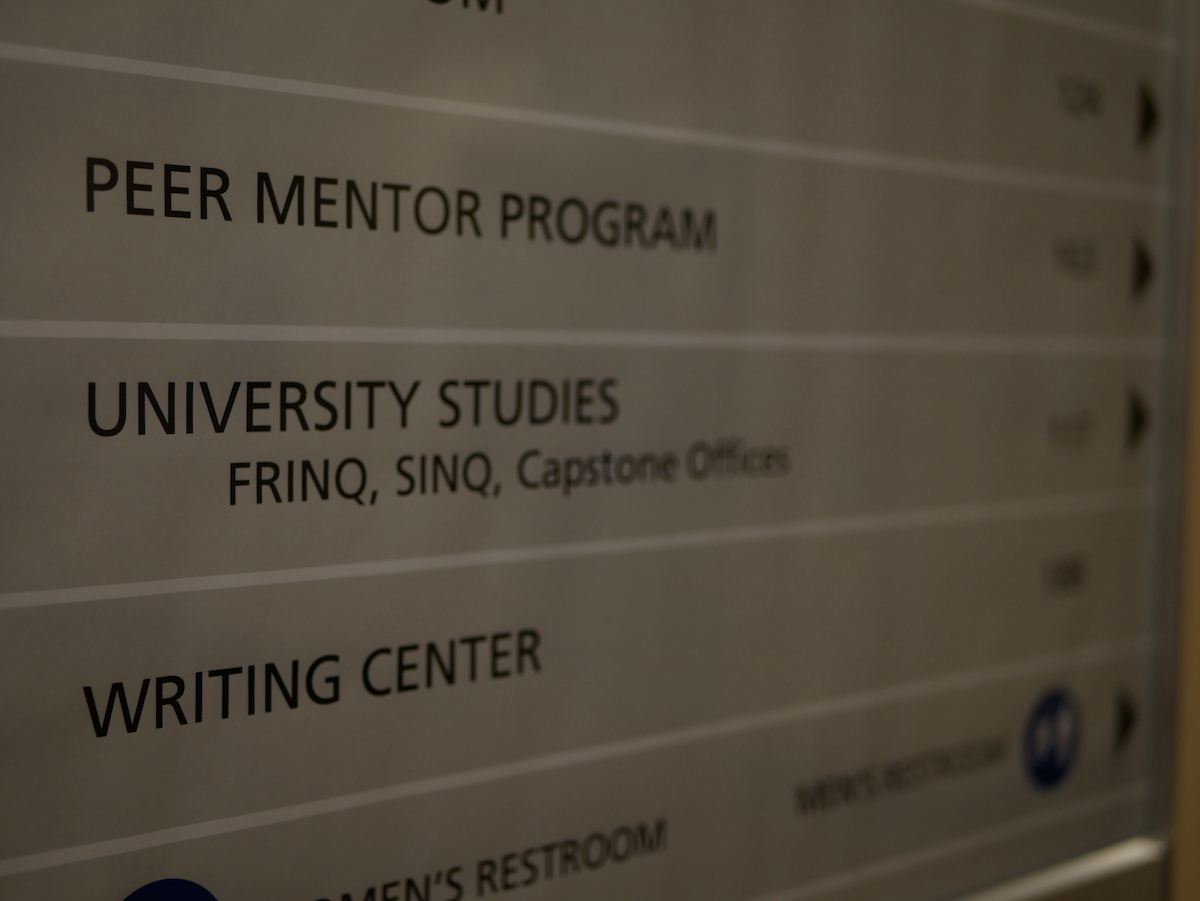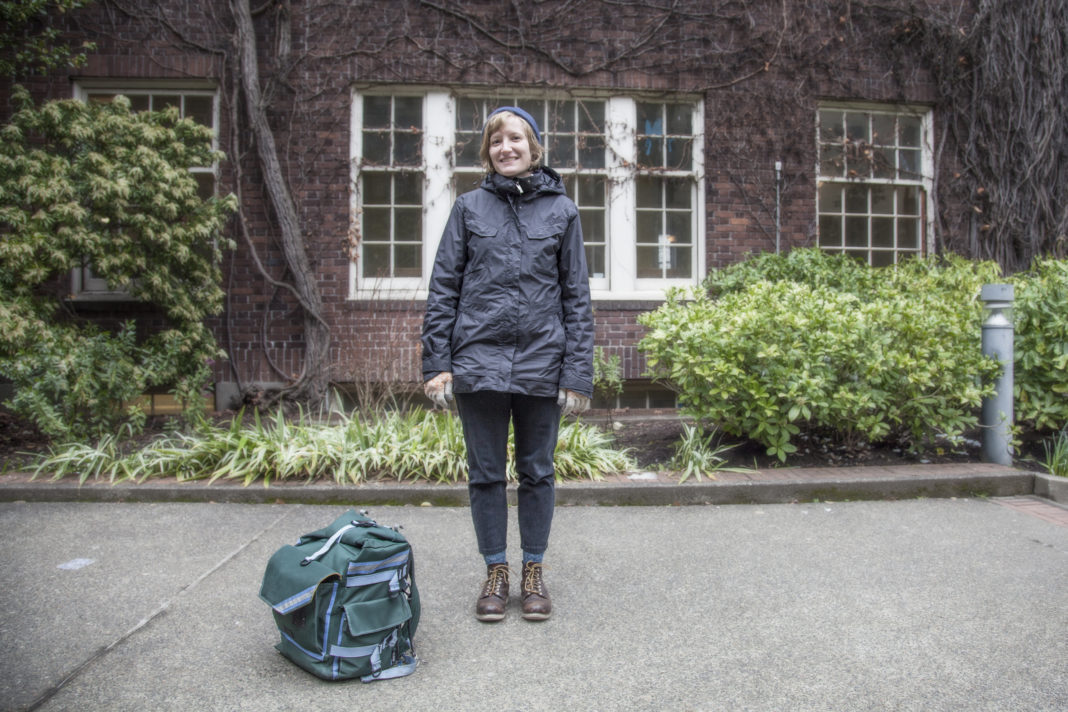On April 6, 14 adjunct faculty in the University Studies department at Portland State were sent emails from the Interim Executive Director of University Studies, Dr. Linda George, notifying them that their appointments with PSU would not be renewed when they expire on June 15.
The email to each professor read in part, “Your efforts and contributions to the University are recognized and appreciated, and are not diminished by the issuance of this letter. In the event it is later decided your services are required, a new Notice of Appointment executed by the University will be offered to you.”
Ariana Jacob, Chair of Bargaining for PSUFA, the University’s adjunct faculty union, said the adjuncts “were sent very brief, utterly impersonal letters saying that they had no work for next year.”
“Some of those adjuncts have been teaching for over a decade,” Jacob said. To be told one is losing their job with no warning, she said, “it’s very scary. It’s very painful. And it’s so incredibly disrespectful of our community of people that makes PSU happen.”
Jacob emphasized that as far as she knew, the adjuncts were not fired for poor performance. “They are projecting low enrollment and they’ve already been dealing with lower than expected enrollment,” she said. “So it means that they’re cutting a number of courses for next year in University Studies.” She believes this foreshadows other changes at the university.
George confirmed that the layoffs were a result of a “sustained decline in enrollment at PSU,” stating University Studies is “particularly sensitive to enrollment…so when enrollment declines we have to cut sections.”
The adjuncts were not given advance notice of the decision. Professor Erica Thomas, who teaches the SINQ course Design Thinking at PSU, said the letter was “shocking.”
“I think the initial letter lacked so much context and had so little context and so little feeling and so little empathy that it was kind of shocking, actually, how cold it was,” Thomas said.
Thomas feels she does not have a relationship with the administration. “The lower in the hierarchy that you go, the more helpful and communicative people are,” she said. “But then we get communications from on high…that do come out of context, or they are written in a way that is confusing or doesn’t feel very empathetic.”
“I think there’s two kinds of administration going on,” she continued. “there’s the administration that has the ability to control our workplace conditions, and our employment. And then there’s the administration who’s responsible for communicating about it.”
“There was no direct indication [of the letter] of any kind,” another professor said. This professor, who requested to remain anonymous, will be referred to from here on as Professor Smith. They had heard talk about enrollment problems from other people in the university, they said.
Some professors had expected to have multiple courses in the spring quarter, only to have these classes cancelled with no warning, in a manner one professor described as “strange.”
Another professor, from here on referred to as Professor Johnson, said they were also given no advance warning before the email was sent by the administration: They had just completed their two-year contract and expected it to be renewed, they explained, because they teach one of the most in-demand undergraduate courses.
Johnson questioned the rationale for the decision. “The assumption that what we’re seeing right now in terms of registration reflects what the registration is going to be seems premature,” they said. Considering the low amount adjuncts are paid for each credit hour, they said, as well as the number of students in each class, they believed classes would still be profitable even with a reduction of tuition due to the pandemic.
Shelly Chabon, vice provost for Academic Personnel and Dean of Interdisciplinary General Education at PSU, stated the adjunct faculty who were laid off are “excellent instructors who have taught many PSU students.” She said that “when enrollment declines, as it has at PSU in recent years, we simply do not have enough classes for all the faculty we employed when student enrollment was higher,” and explained that the letters of non-renewal were sent to the adjuncts in accordance with the PSUFA Collective Bargaining Agreement.
The possible reduction in University Studies programs goes beyond the layoffs of these 14 adjunct professors; according to Professor Sarah Wolf Newlands, a proposal to reduce Sophomore Inquiry (SINQ) requirements will go before the Faculty Senate in June. Faculty members in the department said that the proposal would likely reduce SINQ requirements from three classes to two.
George denied that the proposed reduction in University Studies course requirements was related to the layoffs in the department. “The proposed reduction comes from our analysis of assessment data that shows that the first and second SINQs are highly impactful on retention and student success,” George said. “Given the budget constraints,” she explained, the university is looking to “optimize” its curriculum and requirements.
“It just looks like, from everything I’ve seen, that enrollment is trending towards a somewhat smaller university—which means we need fewer faculty. It is kind of as simple as that,” George said.
Johnson called the proposal “senseless and counterproductive.”
“I can tell you from my own experience, that doesn’t make any sense to me,” they said. Their students often have below-average writing skills, they explained, and University Studies is where they get much of their writing instruction. “I am surprised that they would want to reduce the requirement, because where else will students get this support?” they said.
Johnson also argued the move to cut classes over low enrollment was unwise.
The COVID-19 pandemic is a driving factor in falling enrollment, they said. “Many folks feel it’s very important to them to have a college experience in the way that is depicted in media, right?”
“The whole situation is very anxiety ridden. Folks are losing family members and friends, some students have [long-term COVID-19].” These factors all influence the lower rate of enrollment and lack of participation in classes by students, Johnson said.
When courses return to in-person classes in the fall, Johnson said, students are going to say “‘what the heck, all the classes are full!’ and ‘why aren’t there more sections of this?’”
The adjuncts in University Studies were given no notification of the proposal to reduce SINQ requirements. Professor Thomas said, “I actually found out…in the way that I find out about most things that the university probably isn’t interested in email-blasting out to us until after it’s too late, which is that the union [PSUFA] told me.”
Thomas said she finds out most information about her employment from PSUFA: “all the things that I probably should find out from HR, or the higher level administration in UNST—I find all of that information out from the union,” she said.
“I learned about [the proposal to reduce SINQ requirements] by word of mouth from one of the regular faculty members, not in University Studies,” Professor Smith said. “So there was no discussion that I know of that included adjuncts in University Studies about it.” They don’t know the reasoning behind the proposal or who introduced it, they said.
Smith criticized the proposal, explaining, “I think it’s a very bad idea because students need much more general education today than perhaps in previous times. They also need to learn critical thinking, correct writing. It’s not a one-shot thing; you need a revolution of the calendar, a year, to get some of the things into you.”
The proposed reduction of general education requirements, according to Smith, serves students poorly. “It enables them to move to their specialized work with less secure, less solid grounding in basic skills,” they said.
Smith also said that they learned from speaking to other faculty that the proposal is likely to pass.
Smith gave a defense of general education more broadly: “We need students—[we need] citizens who have a general education, who have these general skills. We do not need citizens who are only specialists.” They described the proposed reduction in SINQ requirements as “a very small piece” of a broader trend of “the dumbing down of national education.”
Thomas said that despite the university expressing a desire to avoid “austerity” measures, “this is a really harsh austerity measure that’s being put in place as a response to the pandemic, which is a temporary and outlying experience that we’re having.”
The long term effect of this reduction in faculty and academic programs will be a reduction in the quality of classes, she said. “I think that riding the pandemic enrollment lull out by firing teachers is not a good choice.”
The professors also spoke to the issue of precarity and job insecurity among adjunct faculty. Jacob said that full-time faculty positions at the university had been “broken” into “many, many, many small adjunct positions which then are more affordable to [the university], but allow [the university] to treat workers with a disregard for their ability to survive as people.” PSU has a financial incentive to do so, she said, because the university does not have to pay benefits to adjunct faculty.
Johnson said of their experience at PSU, “It just seems like the university is not really interested in supporting the [University Studies] program,” in part because University Studies faculty are not eligible to earn tenure as faculty in other departments can.
They said that even though University Studies faculty are “expected to teach, to provide service to the University, and to meet publication and research goals,” they did not have the same job security as faculty in other departments.
Johnson said they felt University Studies was thought of as “unimportant,” which did not make sense to them considering the importance of general education. “When students complete their bachelor’s degree, there’s an expectation that they will have writing skills…[and] be well-rounded individuals in terms of their education,” Johnson said.
Smith echoed this sentiment. “We do okay because we have a strong union,” they said. “I have no complaints about University Studies; they really have given me everything that I need. But the general condition of being underpaid and being precarious has a number of effects. One is on the teaching, of course, and the quality of the teaching is always a victory against those circumstances.”






